-

Five heartbreaking examples of why the bail bonds industry is badly in need of reform
459 pages of complaints from the Nevada Division of Insurance (NDOI) related to bail bondsman point to epidemic in the state: bounty hunters in a largely unregulated industry are routinely using that vacuum to line their own pockets or abuse their customers.
-

CIA’s Guide To Other Country’s Elections: Why Jamaican “National Hero” Michael Manley worried the Agency
Michael Manley, who served as Prime Minister of Jamaica for a total of 11 years, is considered by nearly half of Jamaicans as the best Prime Minister the country ever had. 68% say that he should considered a national hero. However, as a 1980 Agency memo in the middle of a tough re-election battle shows, the Central Intelligence Agency had a much more negative view of Manley, fearing he would resort to illegal means to stay in power.
-
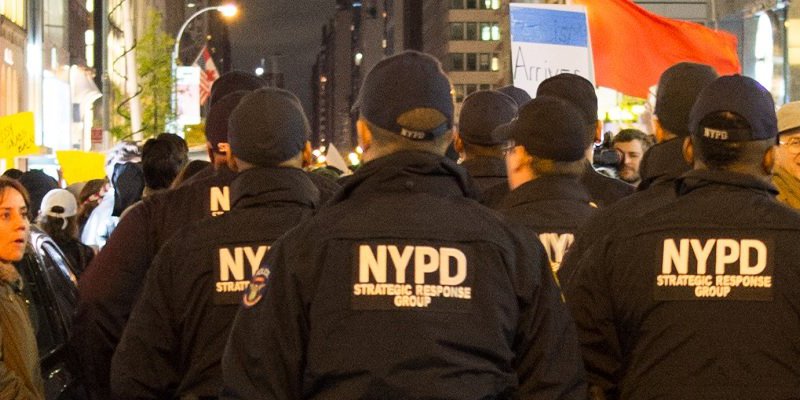
Between the election and the inauguration, the NYPD spent an estimated $35 million guarding Trump Tower
Back in January, MuckRock’s Beryl Lipton filed public records requests with the NYPD for how much the city was spending in security details for President-elect Donald Trump. Those budgets just came in last week, and they confirm reports that Trump was costing his hometown the equivalent of a President’s annual salary every day.
-

How to host your own FOIA Karaoke
FOIA and public records are vital to holding our government accountable - but that doesn’t mean you can’t have some fun with the results, too. Here’s how you can host your own FOIA Karaoke - and if you do, let us know how it goes!
-

Looking back at the last three years in private prisons
Developments in the last three years have injected drama into the lives of private prison companies, but the criticisms of watchdogs in and out of government proved no match for correctional companies in support of the new Presidential administration.
-

FBI investigated General with ties to CIA money laundering for … being a librarian
Brigadier General Edwin Black is best known for his role in the Nugan-Hand scandal, in which the Australian bank was accused of being used by the Central Intelligence Agency for narcotics and arms trafficking and money laundering purposes. To learn more about the scandal, Emma Best filed FOIA requests for all the people associated with it, and General Black’s file reveald two things: First, the FBI file’s only mention of his ties to Nugan-Hand is in the form of a Wall Street Journal clipping. Second, Hoover’s FBI briefly investigated him for being a librarian.
-

Lowell, Massachusetts has no data and no clear policies on sexual assault
In some cities, law enforcement officers follow clear guidelines on how to conduct victim interviews and handle evidence. But in Lowell, Massachusetts, the police department maintains no specific procedures regarding sexual assault response and no data on how many rape kits and haven’t been tested.
-

CIA’s 60 year war with the Government Accountability Office: 1975 Part 2
Whether because of the restrictive guidelines or, as Central Intelligence Agency’s own historian suggests, because of the censorship of the Pike Report, the Government Accountability Office continued to be denied any meaningful ability to audit CIA or aid in Congressional oversight. Several years later, a CIA memo would refer to this as them successfully “holding the GAO and their armies of auditors at bay.”
-
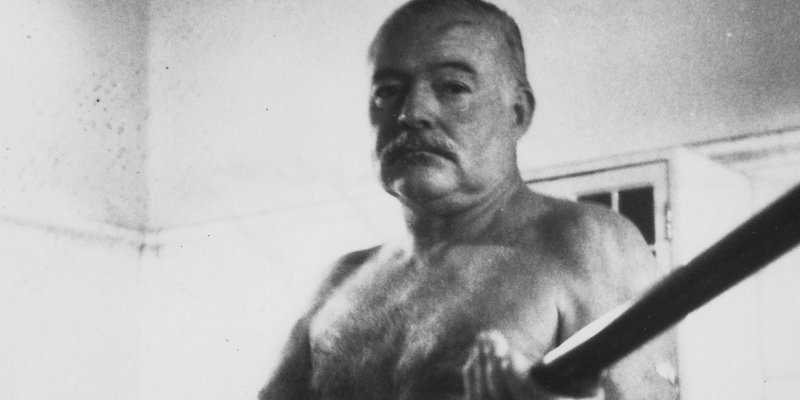
Ernest Hemingway, the FBI, and the aborted duel
FBI files on Ernest Hemingway document the author’s late-life feud with a New Zealand journalist in Cuba that apparently came close to causing an international incident - and led to the 55-year old Hemingway being challenged to a duel.
-
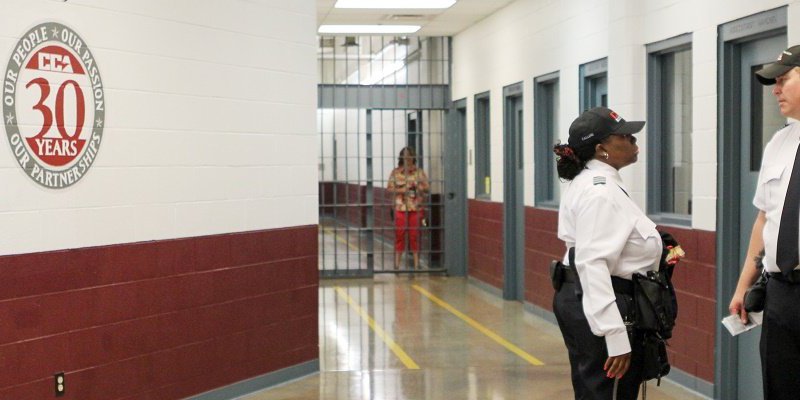
Private prisons still pose plenty of unanswered questions
Private prisons face many of the same obstacles as their public counterparts: drugs, violence, rowdy inmates or rowdy correctional officers. But their operations and how they manage these ubiquitous issues remain a black spot on the corrections ecosystem.
-

The Vanishing Octopus: Justice Department changes the FBI’s story on Danny Casolaro’s file
The Department of Justice appears to have retroactively declared that 98% of the FBI file on the journalist Danny Casolaro was and still is missing, despite the FBI seeming to say they had found it.
-

Getting records from Massachusetts State Police continues to be a challenge - even after you pay for them
After pocketing $180 in fees for a public records request, the Massachusetts State Police turned around and attempted to convince the state supervisor of public records that the agency didn’t have to turn the records over.
-

Five ways private prisons break the rules - and get away with it
Private prisons have received increased scrutiny in the last few years, and Inspectors General and independent investigations have found more than a few questionable habits behind one of the government’s top contracting agents.
-

DAPL threat assessment paints nonviolent Standing Rock protestors as unruly mob, defends use of attack dogs as “protection”
A threat assessment by a local fusion center on the Standing Rock protests recently released to MuckRock presents a lopsided view of the conflict, with guards and law enforcement subject to unfair treatment on social media for their use of dogs as “protection,” and retaliatory public shaming for racist Facebook posts about Native Americans.
-

CIA’s 60 year war with the Government Accountability Office: 1975 Part 1
The 1975 Pike Committee’s report was an immediate problem for the Agency, and inevitably resulting in recommendations that the Central Intelligence Agency was desperate to avoid. These concerns, it seemed, were well founded, as the Committee ultimately recommended that the Government Accountability Office be granted audit authority over CIA - recommendations that CIA was able to, once again, successfully prevent from being implemented.
-
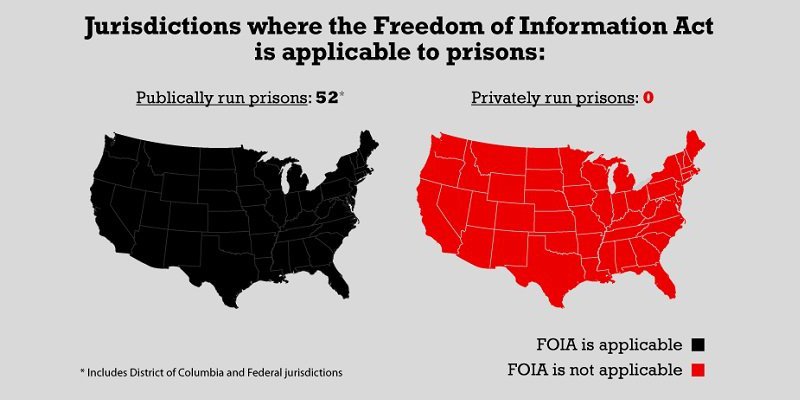
Your annual reminder: FOIA still doesn’t apply to private prisons
Though challenges have been brought successfully in four states where private prisons operate, federal public records law remains inapplicable to the operations of for-profit prisons.
-

The FBI can’t decide what it has on the Tor Project
Three MuckRock users filed FOIA requests from 2013 to 2015 for FBI files on The Tor Project, Inc., the developer of Tor. The software enables (in theory) untraceable access to both the regular internet and a network of websites inaccessible through other browsers, commonly called the “dark web.” Each request returned radically different sets of records, most predating the first request, and all linked only by their lack of substantial information.
-
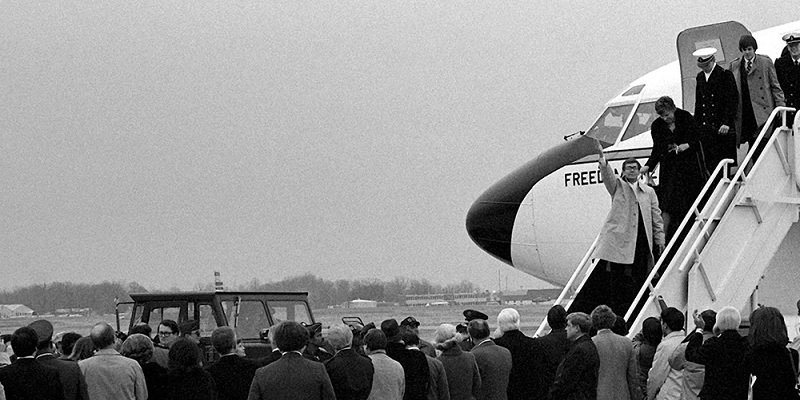
Declassified CIA memo predicted the 1980 October Surprise
A formerly TOP SECRET memo to the CIA Director written by the Agency’s Office of Political Analysis shows that as early as August 1980, the Agency had concluded Iranian hardliners such as Ayatollah Khomeini were “determined to exploit the hostage issue to bring about President Carter’s defeat in the November elections.” While the document doesn’t prove the Reagan campaign intended to collude with Iran, it does document Iran’s motives and matches the October Surprise narrative outlined by former CIA officers.
-

How you can use FOIA to dig into Trump’s business empire, environmental danger, and dubious site downtime
Every week, journalists, researchers, and every day people use public records laws and the Freedom of Information Act to shine light on important (or at least interesting) issues in the most unexpected places. Whether you’re just getting started with public records or are a seasoned document hunters, here’s ideas to help jumpstart your own requesting.
-

CIA psychic program undone by a burrito
By the early ’90s, the multi-agency program investigating psychic phenomenon known as STARGATE was nearing its end. After decades of dubious “remote viewing” experiments, the Central Intelligence Agency had been tasked by Congress with consolidating and evaluating the program’s efficacy - and little did anyone know, but that evaluation was about to be heavily influenced by one subject’s lunch.
-

Read the FBI’s guide to how Soviet spies recruit American assets
A pamphlet written by the FBI’s Intelligence Division in 1983 and signed by then-FBI Director William Webster addressed “the unseen conflict” of Soviet espionage operations against the United States. The pamphlet argued, quite reasonably, that the only way the Bureau could defend against threats like these was if people who were approached by Russian agents remembered that “the FBI is as close as your nearest telephone.”
-

How long does your state have to respond to your public records request?
As part of ongoing project to document every state’s public records law, MuckRock looked at the policies governing how long an agency has to respond to a records request. While most states have clear deadlines, 10 are worryingly vague. Five don’t have any timeline at all.
-
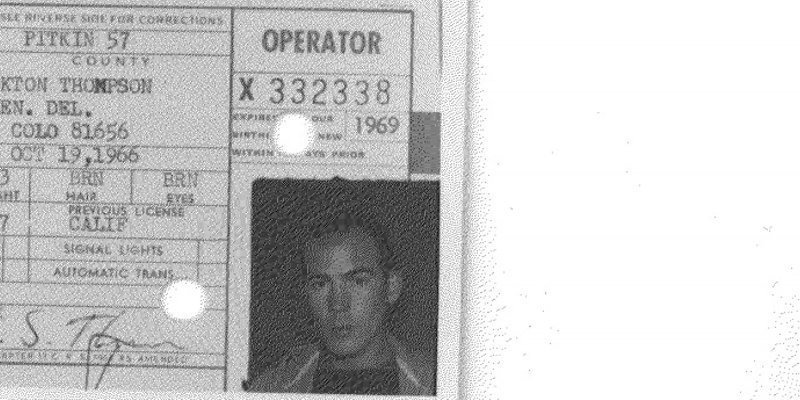
Help MuckRock track down Hunter S. Thompson’s full criminal record
The antics of hell raiser Hunter S. Thompson occupy a permanent place in the culture of anti-authoritarian American angst. In honor of the birthday HST certainly never expected to reach, MuckRock wants your help in tracking down what’s left of the paperwork the rebel king forced the bureaucrats to fill out.
-

Memos show CIA employees were frustrated with inconsistent policies regarding “alien marriage”
As early as 1962, there were issues with Central Intelligence Agency employees marrying “aliens.” There was a set procedure for those looking to wed someone who was not born in the states, and as always, romance and government paperwork did not mix well.
-

Emails show Iraq War PR alumni guided government response to Standing Rock protests
Behind the scenes, as law enforcement officials tried to stem protests against the Dakota Access pipeline, alumni from the George W. Bush White House were leading a crisis communications effort to discredit pipeline protesters. This revelation comes from documents obtained via an open records request from the Laramie County Sheriff’s Department in Wyoming.